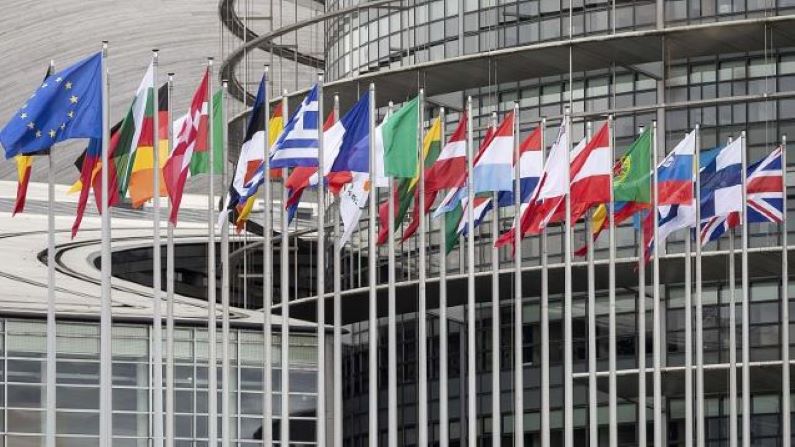A coalition of 17 European nations is demanding a “paradigm shift” in how the European Union handles the deportation of failed asylum seekers, signaling rising frustrations over the bloc’s low return rates. In a non-paper obtained by Euronews, the group of countries is calling for a more effective and efficient process to return asylum seekers whose applications have been denied, stressing that these individuals must face “consequences” if they refuse to comply with return orders.
“People without the right to stay must be held accountable,” the document states. It calls for the establishment of a new legal framework that clearly outlines the obligations and responsibilities of failed asylum seekers. “Non-cooperation must have consequences and be sanctioned,” the paper adds, pushing for stricter enforcement measures.
Led by Austria and the Netherlands, the initiative has garnered support from a broad spectrum of European nations, including Croatia, the Czech Republic, Denmark, Finland, France, Germany, Greece, Italy, Lithuania, Luxembourg, Malta, Slovakia, and Sweden. Non-EU members Norway and Switzerland, both part of the Schengen Area, have also endorsed the effort.
The countries are pressing the European Commission to expedite the creation of a “state-of-the-art framework” that reflects contemporary challenges and solutions. This demand builds on discussions from a working group meeting in June, which sought to address the EU’s persistently low deportation rate—hovering around 30%—with little improvement in recent years. One of the core obstacles identified during that meeting was the lack of cooperation from countries of origin, which often refuse to take back nationals whose asylum requests have been rejected.
Among the measures floated in June was the use of trade and visa policies as leverage to compel countries to comply with deportation agreements. Additionally, the meeting raised the idea of a “common European return decision” to address inconsistencies between member states when recognizing and enforcing deportation orders. However, these proposals were not included in the current non-paper, which serves as a more general call for urgent action and a show of united political will.
The timing of the non-paper is significant, as EU interior ministers are set to meet in Luxembourg later this week, following a series of developments that have intensified concerns about the future of Europe’s migration policies and the Schengen Area’s integrity. Germany recently reintroduced controls at all its land borders, Hungary threatened to weaponize irregular migration against Belgium, and the Netherlands has asked for an opt-out clause from the EU’s asylum rules. These events underscore the deepening divisions within the bloc on how to manage migration flows and asylum seekers.
Migration is also expected to dominate discussions at an upcoming EU leaders’ summit, which will explore the impact of these tensions on the New Pact on Migration and Asylum—a comprehensive legislative overhaul adopted by the EU in May. Although the New Pact includes measures aimed at narrowing the gap between asylum and return procedures, many member states, as indicated in the non-paper, are pushing for a separate, dedicated law to handle deportations.
Efforts to reform the EU’s 2008 Return Directive, which governs deportation procedures, have been stalled in the European Parliament since 2019. For the 17-country group, the failure to advance this reform has reinforced the need for an entirely new legislative text to modernize and streamline deportation processes across Europe.
In line with these demands, European Commission President Ursula von der Leyen has pledged, as part of her second-term agenda, to introduce a “new common approach on returns.” This new legislative framework aims to simplify and expedite deportations while ensuring that they are carried out in a dignified manner. The plan also promises to digitalize case management and ensure mutual recognition of return decisions between member states, which remains a persistent issue under the current system.
As migration pressures continue to rise across the continent, this latest push for stricter deportation policies highlights the EU’s ongoing struggle to find consensus on an issue that has become a key political flashpoint for many governments. Whether the bloc can craft a cohesive and enforceable policy remains to be seen, but the growing call for reform suggests that change may be on the horizon.





